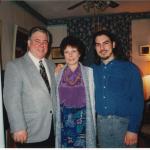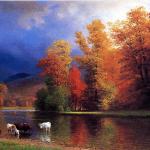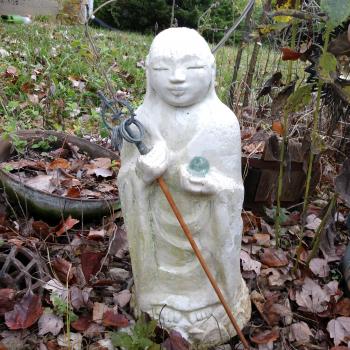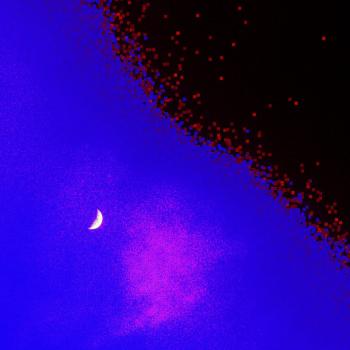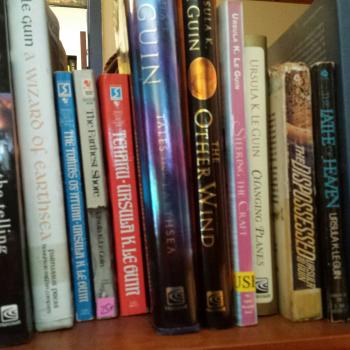It’s been a while since we’ve had a Random Wednesday post. But it’s Pagan New Year. And I’m entering a new phase in my life. So I’m bringing it back, along with a few other renewals and changes. We’ll also be catching up (or trying to) with our 52 Make-Up Challenge, more on that coming soon. Meanwhile, three short bits. (And five Internet points to the first commenter to identify what the title of this post is a reference to.)
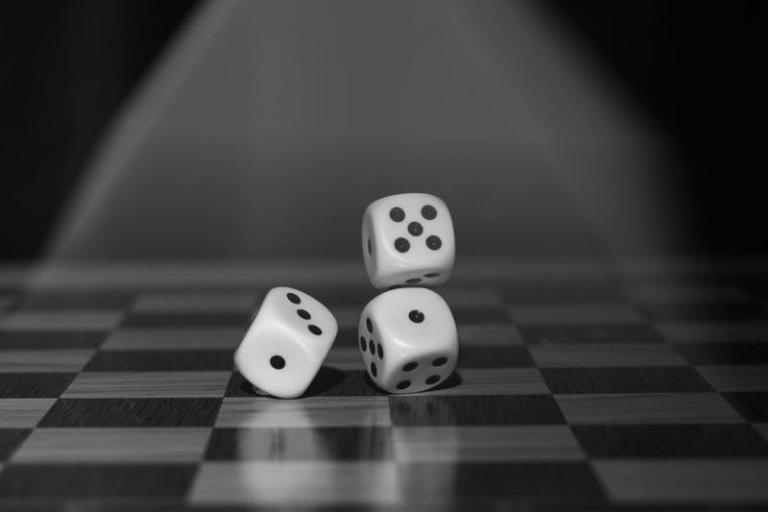
Breaking Geasa
Like a lot of geeks, I first heard of the geas in Dungeons and Dragons. In D&D it is a spell which puts a compulsion on a being to carry out some command, but in Irish mythology it means a religious prohibition, something placed on a person by a deity.
While as a naturalistic Pagan I don’t believe in the straightforward literal existence of anthropomorphic beings with magic powers who could bind the human mind in such a fashion, still there are obligations laid upon us that we cannot break without some sort of doom. So our neighbor John Beckett’s recent thoughts on breaking a geas are a worthwhile read.
Zen And Abortion
In our very first episode of The Zen Pagan, we introduced Jizo, the Bodhisattva of the Earth. Jizo is also a guardian of children, especially those who die young — or before being born. Zen teacher Brad Warner mentions this while discussing the Buddhist stance on abortion:
I discovered something interesting when doing research for my book Sex Sin and Zen, which is that I did not know what the official Buddhist stance on abortion was. You might call that ignorance on my part. But can you imagine anyone being a Catholic, a Protestant, or a Muslim for over thirty years and not knowing what their faith’s official position on abortion was? The very fact that it was even possible for me to be ignorant of the matter tells you a whole lot about the Buddhist position.
There isn’t one.
Samhain Reading: A Wizard of Earthsea
Ursula Le Guin recently celebrated her 88th birthday, so I decided to re-read one of her books from my collection. While Le Guin has more than one novel that has made the cut as Serious Literature — The Left Hand of Darkness is a classic examination of gender, while The Dispossessed is one of the best literary explorations of anarchism — it is A Wizard of Earthsea that I return to again and again.
When I was sick one time as a boy, my mother brought home a few books from the library for me. One of them was The Tombs of Atuan, the second book of the Earthsea series. It was a chance encounter that changed my life; of course I had to go back and find the first book, and I have re-read it at least a dozen times since.
A Wizard of Earthsea is the story of a boy becoming a wizard — not just in the sense of a powerful user of magic, but in the original sense of “wise-ard”, a wise person. Ged, we are told, will one day become Archmage of all the world. As a boy he shows great power — but also great wildness. (Le Guin created Ged, by the way, long before Gaiman created Tim Hunter or Rowling created Harry Potter. This is the ur-tale of the young wizard and leaves those others in the dust.)
In rivalry with another student, he conjures a spirit from the dead. But something, a darkness, slips though the gate he foolishly opens, nearly killing him. And Ged must deal with the shadow he has loosed in the world.
But this is not a simple tale of a monster hunt. Le Guin is a Taoist, in her own fashion, and in her worlds things are too connected and balanced for such a black-and-white view. A somewhat older and wiser Ged explains the ways of life and death and power:
There was a little pause; and Yarrow asked, watching the harrekki climb back to its perch, “Tell me just this, then, if it is not a secret: what other great powers are there beside the light?”
“It is no secret. All power is one in source and end, I think. Years and distances, stars and candles, water and wind and wizardry, the craft in a man’s hand and the wisdom in a tree’s root: they all arise together. My name, and yours, and the true name of the sun, or a spring of water, or an unborn child, all are syllables of the great word that is very slowly spoken by the shining of the stars. There is no other power. No other name.”
Staying his knife on the carved wood, Morre asked, “What of death?”
The girl listened, her shining black head down.
“For a word to be spoken,” Ged answered slowly, “there must be silence. Before, and after.”
It had not occurred to me before, but it is after all a spirit from the domain of the dead, from the other side of the veil, with which Ged must deal. So it makes appropriate Samhain reading. Not that you should wait until next year — go and read this book now.
You can keep up with “The Zen Pagan” by subscribing via RSS or e-mail.
Have I mentioned my books lately? It’s not too early to start Yule shopping, and Why Buddha Touched the Earth or What Does It Mean For The Gods To Exist? make great gifts for the Zen Pagan on your list.


